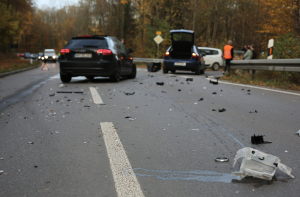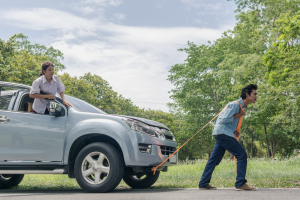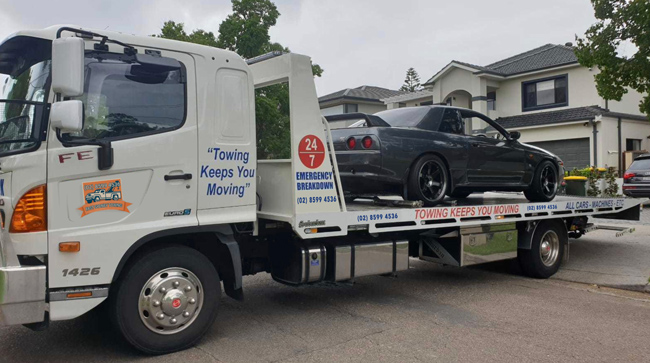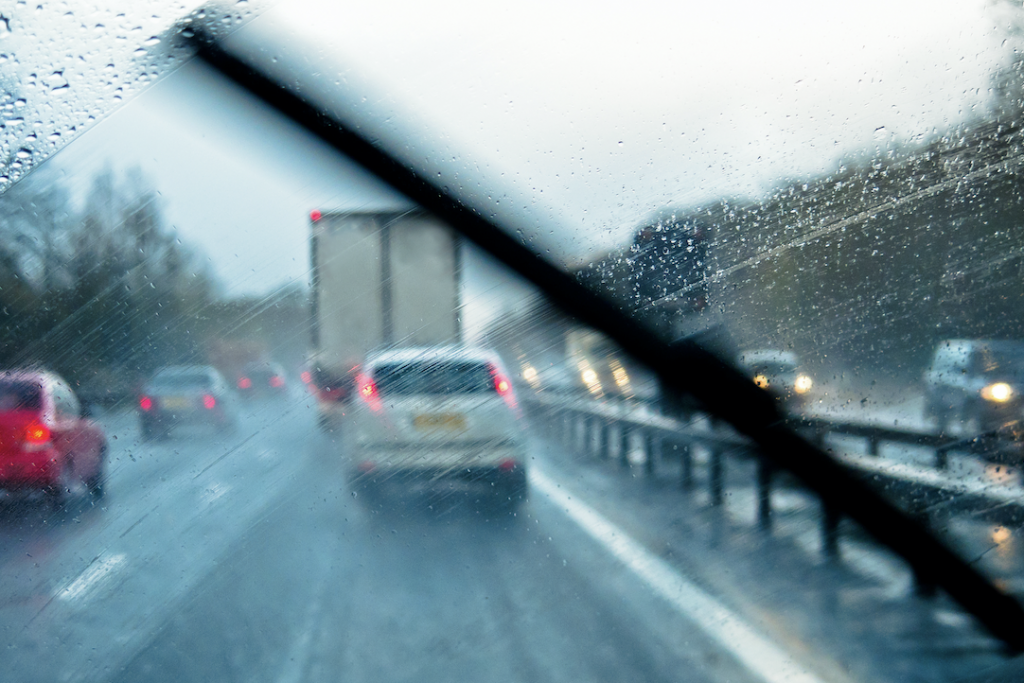Towing, whether you are towing another car or a trailer, requires dexterity. It is also pertinent to have additional knowledge about the activity.
This guide will give you all the essential details you need to tow smartly and safely in Sydney and the rest of New South Wales.
Accident Towing: What to Do

When the towing company arrives, you should know where your car will be towed, along with the towing fee. Always read the terms and conditions before signing anything.
Many car owners do not see that they get to decide where the car will be towed to, including their home. You can have it sent to your house, so you do not have to pay any storage fees.
Many states, including New South Wales, have regulated forms. The state government issued these forms, and they should be the only documents that you should sign at the scene of the accident. Make sure the form only needs appropriate information, such as details about your car and how to contact you. It is also significant that you obtain a copy of the document.
Accident towing is controlled depending on each state. It means the rules can be different across the nation. Some regions have regulations, and the fees are capped. However, others have unclear rules, so dodgy companies usually have no problems ripping consumers off.
Thankfully, New South Wales has stricter rules than other states:
- The fees are regulated.
- You can contact your insurer, a third-party towing service, or even a friend before you sign the authorisation form.
- You have the power to decide where your vehicle will be towed and who does the towing for you.
- It is required that the accident towing trucks have “TT” on their number plate, along with four numbers before these letters.
When choosing a towing company, you should make sure that the driver has an appropriate driver certificate. In New South Wales, it is illegal for the towing company to offer any other service and for spotter’s fees. The company should only provide towing services.
NSW does not have a roster system for accidents, which means that drivers could appear to offer you service. However, you should not be harassed to sign any form, including a towing authorisation document. It is also required that you get a complete quote of all fees associated with the towing service.
Here is an overview of the towing fees in the state:
- The maximum price should only be $238.
- If you have the vehicle towed over 10 km from the accident scene, you will have to pay an additional $5.17 per km in Sydney. Meanwhile, the additional fee is $4.26 per km in other parts of NSW.
- If you will have your car towed from the holding yard of the towing company after having it stored there, the maximum fee to pay is $86.
- Some cars need extra work after an accident. You should not be charged if the car is moved within 30 minutes. However, you will have to pay $61 per hour extra (maximum).
- Running into an accident after hours (5 PM to 8 AM on weekdays, as well as during the weekends and holidays) will require you to pay about 20% extra.
If you have your car stored in the towing company’s holding yard, you will have to pay $23 for Sydney metro for 24 hours and $14 for the rest of NSW. The fees can vary depending on the type of vehicle you have.
What about Insurance?
Many people would call a towing service if they need to have their vehicle towed. It may also be the first thing on your mind and the only plausible solution at this point. However, is it legal? Before you call a towing service, you should first know two crucial things:
- See if you are covered. Towing cover may not be included in your insurance. Review the disclosure statement of your insurance product to ensure that it includes towing.
- Contact your insurance company if you are covered. Before you even do anything, the first thing you should do is call the insurance provider. The insurer may provide a tow truck for you and provide details about what you should expect.
Comprehensive car insurance often covers roadside assistance, which includes towing in times of:
- Accidents
- Flat tyre
- Emergency fuel needs
- Dead batteries
- Lost keys or getting locked out of the car
Roadside assistance is quite helpful because it usually allows you to call any time of the day and get the help you need with no extra charge.
 What You Need to Know about Towing Weight
What You Need to Know about Towing Weight
People who tow a car usually do not know how weight affects the towing experience. Towing companies have the knowledge and expertise in determining the different loads. It is essential to calculate the numbers involved first to tow safely and legally.
Every vehicle, as well as caravans and campers, is designed to accommodate a certain weight before it fails. These weights cover parts of rigs, including the normal weight (empty platform), total weight, and load tolerance, among others.
If the manufacturer of the vehicle or caravan has supplied specifics regarding towing weights, it is best to follow these guidelines. At the same time, all drivers are legally required to adhere to these rules. It is every driver’s responsibility to ensure the rig is secure and legal as soon as you take it out on the road.
The Road Transport Regulation 1999 authorises the Roads and Traffic Authority (RTA) to allow motor vehicles to flat-tow another car even without a skilled person in charge.
Commonly, an A-frame is used, which is a frame that is shaped like a triangle and enables easy towing of another vehicle. This mechanism can tow another car without needing it to be lifted. It is a requirement that both the drivers behind the wheel of the towed and towing vehicles are registered.
The mechanism should be strong to secure the vehicles together. The A-frame should also comply with the Australian Design Rule (ADR) 62, which details the mechanical connections between the towed and towing cars.
According to ADR 62, some vehicle combinations require the fitting of safety chains:
- A towed vehicle of up to 2000 kg requires an emergency breakaway system.
- Meanwhile, if it weighs over 2000 kg, the emergency breakaway system should be accompanied by cables or chains for safety.
The safety chains should comply with specific performance requirements depending on the weight of the vehicle. For instance, lighter cars that are up to 1000 kg will require at least one chain that measures 6.3 mm in diameter. This chain should meet the Australian Standard 4177.4-2004
Types of Tow Trucks and Vehicles You Can Tow
Tow trucks differ to suit certain situations. The most common types are:
- Flatbed trucks: This type is perhaps the most common and widely used not only in NSW but the rest of the world. This truck is recognisable for its flat top and long bed. It is easy to use, mainly because you can drive or have the vehicle pulled up without any problems. Flatbed trucks are often utilised when transporting cars after an accident.
- Integrated trucks: For heavy-duty purposes, this type of tow truck is mostly preferred. An integrated truck can transport large vehicles, including rigs and buses. It has more axles than other towing truck types to increase its strength and stability.
- Hook and chain trucks: For all kinds of cargo, this type of truck may be used. However, it is no longer as common as it was before because many complained that it applied too much pressure on the vehicles. Nevertheless, a hook-and-chain is still useful, especially when towing junk autos.
- Wheel-lift truck: This truck is comparable to a hook and chain, except that it uses a metal yoke and not a set of chains. Therefore, this type does not cause as much damage to the vehicle.
Meanwhile, when calling a towing service, you will have to pay for fees unless you call your insurance company first. The price, however, depends on certain factors, including the type of vehicle you have.
It will also affect the fee for storage if you use this service. The bigger the vehicle, the more expensive it gets. In NSW, the rates often differ in Sydney while the rest of the state has almost the same charges.
For instance, storing a car after having it towed would cost you about $23 in Sydney while the other parts of NSW only charge $14. Meanwhile, for motorbikes, Sydney metro would often charge $12 per 24 hours max. The rest of the state has a maximum fee of $7 per 24 hours.
Unlicensed Vehicles and Owners
An unlicensed vehicle is deemed as such if it does not have proper licencing from the state. The car can be anything from cars to vans to caravans to motorbikes. If you drive an unregistered vehicle, you will have to pay hefty penalties. The law recognises such activity as illegal and may cause harm.
If you get caught, you will not only be fined, but your number plates will also be removed automatically. The police may even seize your car. Authorities can also claim the plates if the unlicensed vehicle is not moving or just parked in an area. Additionally, they can seize the number plates if the car has expired registration for more than 15 days.
There are also penalties for those who drive without a licence. It is essential to know about these rules to avoid getting your car towed. On the other hand, if you are towing a vehicle, you must have the necessary permit or documentation to do so. In this case, you should be a licenced driver and your car should be fully licenced.
If you have a registered car, it is still required to have a licenced driver behind the wheel of the vehicle being towed. Some exceptions apply here though. The driver of the towed vehicle may not be licenced yet still conform to the laws if the following conditions are met:
- The authority has given the unregistered driver a written permission
- A police officer has allowed the driver to get behind the wheel in case of an emergency
You will also find unlicensed companies that are willing to provide towing services when your car needs to be towed. It may seem a good choice, mainly because these companies are much cheaper than registered competitors. However, they will only provide you with low-quality service.
These companies and drivers are also uninsured, which means they may not even have the knowledge to use their equipment. Be wise and never trust these groups because they can even cause you to lose your car.
Towing an Abusive Driver’s Car
An abusive driver is not only a danger to himself but those around him as well, both on properties and other human beings. Unfortunately, this kind of driver is everywhere in the world, including in NSW. It is a good thing that the state does not tolerate any form of bad behaviour on the road.
Despite the strict rules and regulations, some drivers think they are above the law. Sydney had the most significant accumulated fines in the entire state, allowing the government to raise $223 million from speeding fines alone. Most aggressive drivers are middle-aged men with 105 of them in their 40s who were involved in crashes with fatalities.
The good news is that the number of accidents was down in 2018 compared to the previous year. Drivers who are arrested for unruly behaviours, such as driving under the influence, will need to have their vehicle towed away. The only exception is if there is someone else who could drive the car legally. If towing is required, the vehicle will be delivered to the impound lot. The police will then search it to get more evidence.
For drug offences, forensic recovery may be performed. This collecting evidence enables authorities to search the car at the impound lot where it will not be subject to contamination. Often, a lift flatbed tow truck will be utilised to recover evidence from the abusive driver’s vehicle.
Towing After Road Fatalities and Injuries
After a crash, towing a vehicle is crucial. Insurance companies may provide towing service. Therefore, it is significant to call your insurer first if you are involved in an accident with fatalities. Whether the accident involves one, five, or more cars, all the vehicles should be towed away.
Most of the time, the vehicle will be towed away for legal reasons. For instance, the driver was reckless, causing vehicular manslaughter. After a wreck, you should never move your car before the tow truck arrives. You typically have two options here:
- Have your vehicle transported and pick it up at a later time to have it repaired.
- A police officer wants to tow your vehicle away from the road.
Towing and storage of the car can be costly if you do not claim it the next day. The at-fault driver, though, will generally pay for the fees.
Vehicles Involved in Crimes and Crime Scenes
Crime scenes are quite complex. The authorities will have to properly collect and document every bit of evidence available in and out of the car. From photographs to sketches, everything should be noted. Therefore, it can take a while before the vehicle is towed.
Two scenarios typically take place:
- An officer will do an inventory of the car on the scene. Then, everything found will be recorded on a “towing ticket.” This ticket will be given to a tow truck driver and then be forwarded to a person at an impound lot. When everything is checked, the vehicle can be taken out of the crime scene by a towing company or someone allowed by the authority to drive it away.
- The car will be towed to a controlled environment, such as a warehouse. It is where fingerprints and other evidence will be collected. This second option is preferred in homicides.
Unsafe Conditions for Towing
Before towing and wondering if it is safe, you should first know if what you will do is legal. Towing a car should not breach traffic legislation. It is also pertinent to ensure the two vehicles are in a roadworthy condition. Plus, only a licenced driver should operate the two vehicles.
Assess the safe and danger zones. If you are near the road and the traffic is a little heavy, it may not be safe to tow just yet. It is also not advisable to improvise because it is crucial to have the right equipment when towing. Here are more things to watch out for:
- Vehicle weight: Check the weight found on the plate of the door of the driver. It should not exceed the recovery equipment’s ratings.
- Recovery straps: If they are not in good condition, you should not attempt to tow.
- Weather: When the road is slippery, it can make towing more complicated. Remember, you will not just control one vehicle but two. When it is a slight drizzle, you can proceed. However, if it is pouring hard or snowing, you may want to rethink your decision.
- Spots: It is already quite challenging to manoeuvre in uneven terrain. You can already guess it is not recommended to tow in such areas.
Never risk your life to save money. You could end up hurting yourself and others around you. Instead, call a professional to make sure that your whole towing journey will be safe, secure, and legal.

 What You Need to Know about Towing Weight
What You Need to Know about Towing Weight
